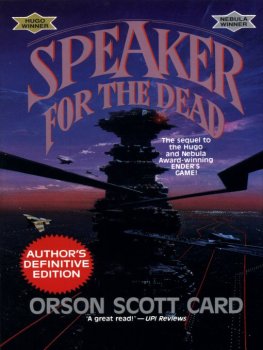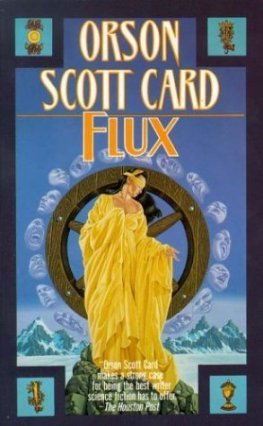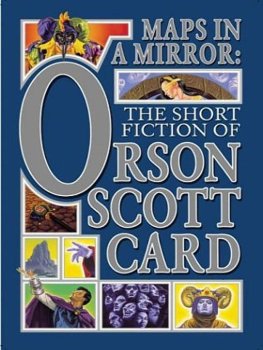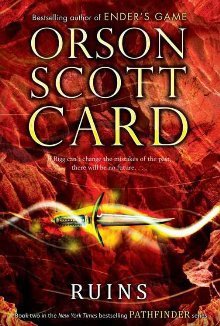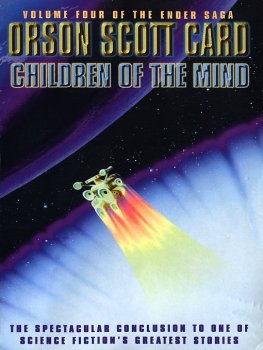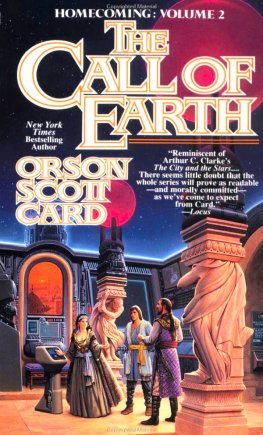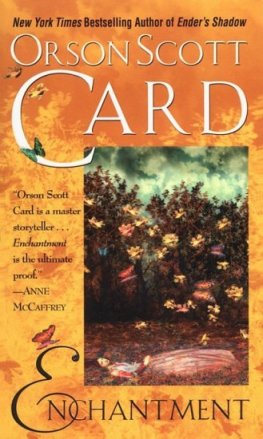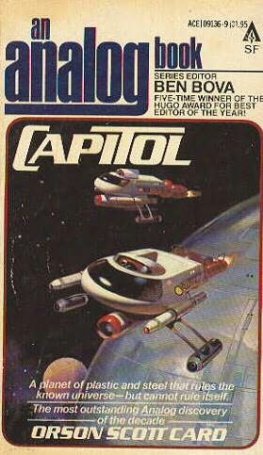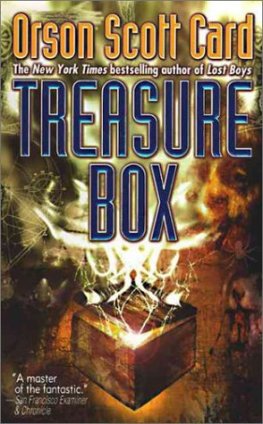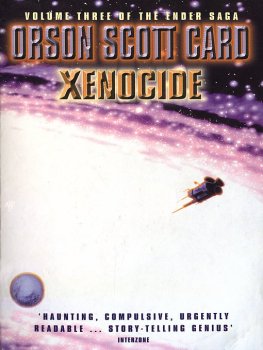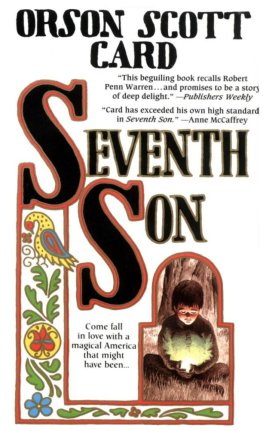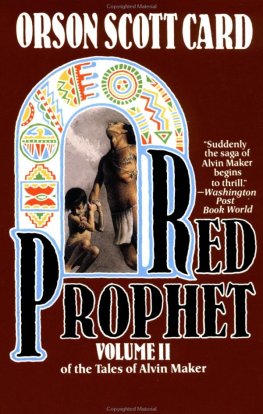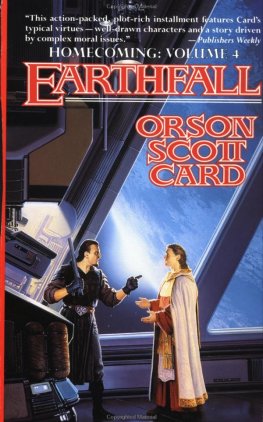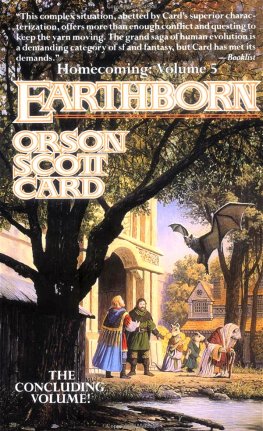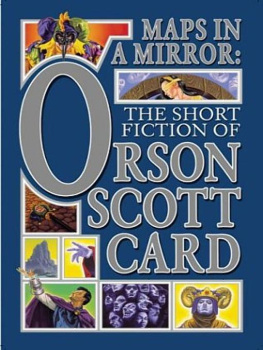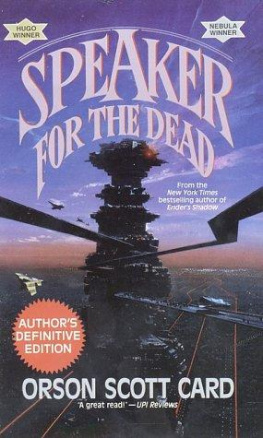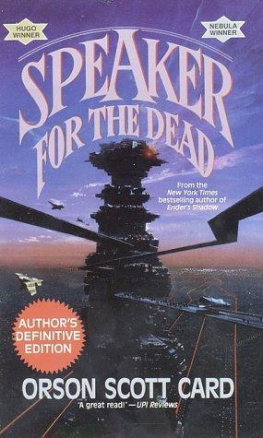Orson Card - Speaker for the Dead
Here you can read online Orson Card - Speaker for the Dead full text of the book (entire story) in english for free. Download pdf and epub, get meaning, cover and reviews about this ebook. publisher: A Tor Book - Published by Tom Doherty Associates, Inc., genre: Science fiction. Description of the work, (preface) as well as reviews are available. Best literature library LitArk.com created for fans of good reading and offers a wide selection of genres:
Romance novel
Science fiction
Adventure
Detective
Science
History
Home and family
Prose
Art
Politics
Computer
Non-fiction
Religion
Business
Children
Humor
Choose a favorite category and find really read worthwhile books. Enjoy immersion in the world of imagination, feel the emotions of the characters or learn something new for yourself, make an fascinating discovery.
- Book:Speaker for the Dead
- Author:
- Publisher:A Tor Book - Published by Tom Doherty Associates, Inc.
- Genre:
- Rating:3 / 5
- Favourites:Add to favourites
- Your mark:
- 60
- 1
- 2
- 3
- 4
- 5
Speaker for the Dead: summary, description and annotation
We offer to read an annotation, description, summary or preface (depends on what the author of the book "Speaker for the Dead" wrote himself). If you haven't found the necessary information about the book — write in the comments, we will try to find it.
Speaker for the Dead — read online for free the complete book (whole text) full work
Below is the text of the book, divided by pages. System saving the place of the last page read, allows you to conveniently read the book "Speaker for the Dead" online for free, without having to search again every time where you left off. Put a bookmark, and you can go to the page where you finished reading at any time.
Font size:
Interval:
Bookmark:
Orson Scott Card
Speaker for the Dead
For Gregg Keizer
who already knew how
Introduction
Speaker for the Dead is a sequel, but it didn't begin life that way--and you don't have to read it that way, either. It was my intention all along for Speaker to be able to stand alone, for it to make sense whether you have read Ender's Game or not. Indeed, in my mind this was the "real" book, if I hadn't been trying to write Speaker for the Dead back in I983, there would never have been a novel version of Ender's Game at all.
How did Speaker for the Dead come to be? As with all my stories, this one began with more than one idea. The concept of a "speaker for the dead" arose from my experiences with death and funerals. I have written of this at greater length elsewhere; suffice it to say that I grew dissatisfied with the way that we use our funerals to revise the life of the dead, to give the dead a story so different from their, actual life that, in effect, we kill them all over again. No, that is too strong. Let me just say that we erase them, we edit them, we make them into a person much easier to live with than the person who actually lived.
I rejected that idea I thought that a more appropriate funeral would be to say honestly, what that person was and what that person did. But to me, "honesty" doesn't simply mean saying all the unpleasant things instead of saying only the nice ones. It doesn't even consist of averaging them out. No, to understand who a person really was, what his or her life really meant, the speaker for the dead would have to explain their self-story--what they meant to do, what they actually did, what they regretted, what they rejoiced in. That's the story that we never know, the story that we never can know--and yet, at the time of death, it's the only story truly worth telling.
I have received several letters, by the way, from people who are called upon to speak at funerals from time to time, and who, having read Speaker for the Dead, make an effort to turn the funeral service into a Speaking. I hasten to add that they have done this either with the permission of the family or at the urging of the deceased (given, obviously, before death!). Some of them have even sent me the text of their Speaking, and I must tell you that the stories thus told are astonishing and powerful. I hope someone will do a Speaking at my funeral. I think there really is power and truth in the idea.
But that was not the only source of Speaker for the Dead. I was also a longtime aficionado of anthropological science fiction--stories in which a scientist studies an alien culture and uncovers the reasons for their strangeness. The first such novel that I read was James Blish's A Case of Conscience. Not many years later, I read Michael Bishop's story "Death and Designation among the Asadi." Both had a powerful effect on me. So in the back of my mind, I had a strong desire to add something of my own to that subgenre.
So when I thought of the idea of an alien species which in order to reproduce, had to slaughter each other in terrible intertribal wars, it was only natural that I decided the story should be told from the viewpoint of a human scientist studying them. Only gradually, over several years. did I develop the idea of the piggies and their strange lifecycle, and the intertribal war receded in importance--so much so that I didn't need to make it an issue in Speaker for the Dead at all. But it was in trying to think of an evolutionary reason why these little porcine aliens would need to slaughter each other for the species to thrive that I came up with the pequeninos that you meet in the pages of this book.
I was living with my wife, Kristine (ne Allen), in Orem, Utah, when I made the first breakthrough in creating this book. The two ideas were still quite separate, and the speaker-for-the-dead idea was still in a very primitive form. In fact, I had decided that the funeral "oration" should be in song--that it should be a "singer of death." I suppose I thought of this because I had sung at a few funerals and found it a moving experience even when I didn't know the deceased. But when I mentioned this singer-of-death idea to Kristine, she winced. "You've already written 'Unaccompanied Sonata' and Songmaster."she reminded me. "They were both about music. If you do another music story people will think that's all you can do." I realized that she was even more right than she knew! It happened that "Unaccompanied Sonata" and the original short story, "Mikal's Songbird," on which Songmaster had been based were also two of my stories that had been nominated for awards. In fact a novella called "Songhouse," which was really the opening chapters of Songmaster, had also been nominated for a Hugo. The only story of mine which had been nominated for awards and that wasn't about music was the novelet version of "Ender's Game"! So Kristine had inadvertently caught me in the unconscious process of imitating my own past successes. I knew she was right--the music motif may have won me some favorable attention, but it was time to set aside that crutch and do something else.
So it would be a speaker of death in my story, not a singer. That felt right. But here's the silly part. Perhaps I was still unconsciously trying to lean on my most successful previous work, but I immediately wondered, What if the Speaker of Death was Ender Wiggin? It was obvious to me what I was doing--if I can't do the music thing, I can still bring the kid-who-saves-the-world back for another round! And yet the idea appealed to me. I didn't trust it yet, but it appealed to me.
After all, Ender had to do something after destroying the Buggers. What if Ender Wiggin comes to an alien world as a Speaker of Death, and accidently gets caught up in the mystery of why these piggies are slaughtering each other? It had a delicious symmetry to it--the man who, as a child, destroyed one alien species now has a chance to save another.
The idea sat there in the back of my mind for many months and as it did, the story grew. More to the point. the character of Ender grew. I had never thought much about what he would do after winning his war at the end of "Ender's Game," except that his life would never be that interesting again, and he would have a terrible time adjusting to normal human life. A, writer friend of mine, Jim Tucker, had once proposed doing a sequel to "Ender's Game" that involved bringing Ender back to Earth, but while the story he came up with had some appeal, I knew in my heart ~ the one thing Ender could never do was return to live out his life on the birthworld of humanity. Having him become a speaker for the dead, however, wandering from nation to nation and world to world, researching and orating for the deadthat, I thought, was a wonderful way to reconcile him with the human race that had used him up as a child.
Gradually the ideas came together. When my agent, Barbara Bova, said that she'd like to sell a book to Tom Doherty's new publishing house, Tor, I realized that the book I wanted to write next was Speaker of Death. So I wrote an outline and the first few chapters, the contract was written, the deal was made. I was living in lndiana at the time, working on a doctorate at Notre Dame and finishing up Hart's Hope, Worthing Chronicle and Saints for another publisher. It wasn't until the recession interrupted my degree program (forever, I'm afraid--no doctorate for me now!) and sent me to Greensboro, North Carolina, for my only stint doing honest labor since 1978 that I had a chance to get back to Speaker of Death.
What I discovered then--the spring of 1983--was that the book was unwritable. In order to make the Ender Wiggin of
Font size:
Interval:
Bookmark:
Similar books «Speaker for the Dead»
Look at similar books to Speaker for the Dead. We have selected literature similar in name and meaning in the hope of providing readers with more options to find new, interesting, not yet read works.
Discussion, reviews of the book Speaker for the Dead and just readers' own opinions. Leave your comments, write what you think about the work, its meaning or the main characters. Specify what exactly you liked and what you didn't like, and why you think so.

